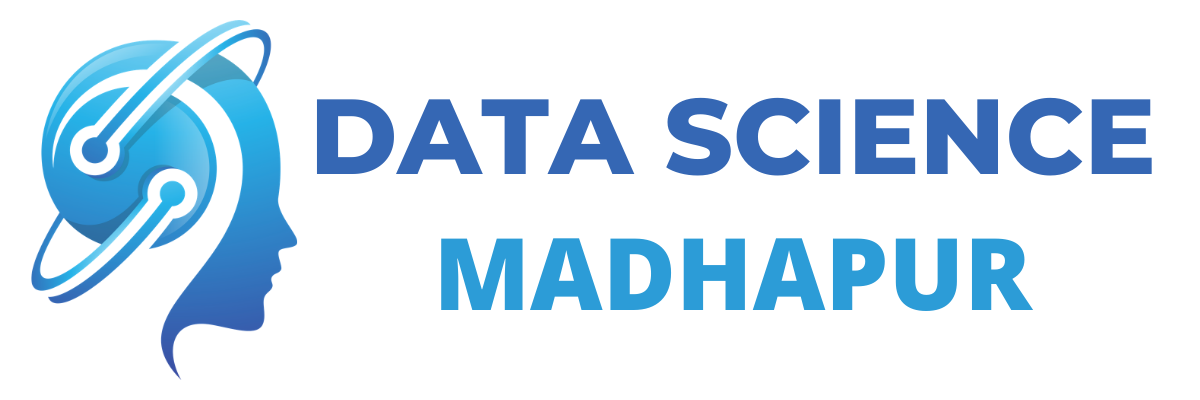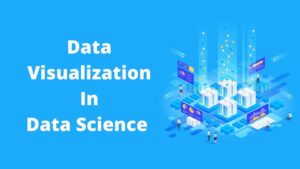The comparison between data science and artificial intelligence (AI) is not a matter of which one is better, as they are closely interconnected and often used together. Let me explain the relationship between the two:
Data science is a multidisciplinary field that involves extracting insights and knowledge from data. It encompasses various techniques such as data collection, data cleaning, data analysis, statistical modelling, and data visualization. Data scientists use these methods to understand patterns, make predictions, and drive decision-making processes.
AI is a subset of computer science that focuses on developing intelligent machines or systems that can perform tasks that would typically require human intelligence. AI involves techniques like machine learning, deep learning, natural language processing, computer vision, and more. These techniques enable systems to learn from data, recognize patterns, make decisions, and perform tasks autonomously.
Data science provides the tools and techniques to handle and analyse data, while AI algorithms and models can be applied within the data science framework to make predictions, automate processes, and uncover insights from the data.
Both data science and AI have their own unique applications and are crucial in different domains. Data science is vital for extracting knowledge from data and understanding the underlying patterns and trends. AI, on the other hand, is used to develop intelligent systems that can make decisions, recognize images, process natural language, and much more.
Here’s a more detailed explanation of each field and their applications:
Data Science:
Data science is an interdisciplinary field that combines various techniques, tools, and methodologies to extract insights and knowledge from data. It involves several stages, including data collection, data cleaning, data integration, data analysis, statistical modelling, and data visualization. Data scientists use these techniques to uncover patterns, trends, and correlations in the data, ultimately leading to informed decision-making.
Applications of Data Science:
Business Analytics: Data science is extensively used in business analytics to analyse customer behavior, optimize marketing strategies, predict market trends, and make data-driven business decisions.
Healthcare: Data science plays a crucial role in healthcare by analysing patient data to improve diagnostics, develop personalized treatment plans, and discover patterns in disease outbreaks.
Finance: Data science is utilized in finance for risk modelling, fraud detection, algorithmic trading, credit scoring, and portfolio optimization.
Recommender Systems: Data science algorithms power recommender systems used by e-commerce platforms, streaming services, and social media platforms to suggest personalized recommendations to users.
Internet of Things (IoT): Data science techniques are used to analyse and derive insights from data collected by IoT devices, enabling the development of smart cities, predictive maintenance, and energy optimization.
Career Opportunities in Data Science:
Data science offers a wide range of career opportunities, including:
Data Scientist: Responsible for analysing complex datasets, building predictive models, and extracting insights.
Data Analyst: Focuses on data cleaning, exploration, and visualization to support business decision-making.
Machine Learning Engineer: Specializes in developing and deploying machine learning models.
Data Engineer: Designs and maintains data pipelines, databases, and data infrastructure.
Learn the core concepts of Data Science Course video on Youtube:
Business Analyst: Utilizes data-driven insights to identify business opportunities and optimize processes.
Data Architect: Designs the overall structure and organization of data systems.
Now, let’s delve into the field of AI:
Artificial Intelligence (AI):
Artificial Intelligence is a branch of computer science that aims to create intelligent machines or systems that can perform tasks that typically require human intelligence. AI encompasses various subfields, including machine learning, deep learning, natural language processing (NLP), computer vision, robotics, and more.
Applications of AI:
Machine Learning: AI algorithms and techniques are used in machine learning to enable systems to learn from data, make predictions, and automate tasks. Applications include spam filtering, image recognition, speech recognition, and recommendation systems.
Natural Language Processing (NLP): AI is used to process and understand human language, enabling applications like chatbots, language translation, sentiment analysis, and voice assistants.
Computer Vision: AI algorithms can analyze and interpret visual data, enabling tasks such as object detection, facial recognition, and autonomous vehicles.
Robotics: AI plays a vital role in robotics, enabling robots to perceive the environment, make decisions, and perform tasks autonomously.
Autonomous Systems: AI is utilized in developing self-driving cars, drones, and other autonomous systems that can operate without human intervention.
Career Opportunities in AI:
The field of AI offers diverse career opportunities, including:
AI Research Scientist: Focuses on advancing AI algorithms and developing new AI techniques.
Machine Learning Engineer: Specializes in designing and implementing machine learning models and systems.
NLP Engineer: Works on developing systems that can understand and process human language.
Robotics Engineer: Designs and develops robots and autonomous systems.
AI Consultant: Provides expertise in implementing AI solutions for businesses.
AI Ethicist: Ensures responsible and ethical use of AI technologies.
Data Science and AI Integration:
Data science and AI are closely intertwined and often used together to tackle complex problems and extract meaningful insights from data. Here are a few examples of how these fields intersect:
Machine Learning in Data Science: Machine learning, a subset of AI, is a powerful tool in data science. It enables systems to learn from data and make predictions or take actions without being explicitly programmed. Data scientists often use machine learning algorithms and models to analyze data, build predictive models, and uncover patterns and trends.
Deep Learning in Data Science: Deep learning, a subfield of machine learning, focuses on neural networks with multiple layers. It has revolutionized areas such as computer vision, natural language processing, and speech recognition. Data scientists leverage deep learning techniques to extract complex features from data and build sophisticated models for tasks such as image classification, sentiment analysis, and language generation.
AI-powered Data Analytics: AI techniques, such as natural language processing and computer vision, can enhance data analytics capabilities. For example, sentiment analysis algorithms can analyze text data to understand customer opinions and feedback. Computer vision algorithms can process images or videos to extract valuable information for analysis. These AI-powered analytics techniques enable data scientists to gain deeper insights from various types of data.
Automated Machine Learning (AutoML): AutoML is an emerging field that combines data science and AI to automate the process of building machine learning models. It aims to make machine learning more accessible to non-experts by automating tasks such as feature selection, hyperparameter tuning, and model selection. AutoML tools and frameworks allow data scientists to focus more on the interpretation and application of results rather than the technical intricacies of model development.
Data Science Placement Success Story
Data Science Training Institutes in Other Locations
Tirunelveli, Kothrud, Ahmedabad, Hebbal, Chengalpattu, Borivali, Udaipur, Trichur, Tiruchchirappalli, Srinagar, Ludhiana, Shimoga, Shimla, Siliguri, Rourkela, Roorkee, Pondicherry, Rajkot, Ranchi, Rohtak, Pimpri, Moradabad, Mohali, Meerut, Madurai, Kolhapur, Khammam, Jodhpur, Jamshedpur, Jammu, Jalandhar, Jabalpur, Gandhinagar, Ghaziabad, Gorakhpur, Gwalior, Ernakulam, Erode, Durgapur, Dombivli, Dehradun, Cochin, Bhubaneswar, Bhopal, Anantapur, Anand, Amritsar, Agra , Kharadi, Calicut, Yelahanka, Salem, Thane, Andhra Pradesh, Greater Warangal, Kompally, Mumbai, Anna Nagar, ECIL, Guduvanchery, Kalaburagi, Porur, Chromepet, Kochi, Kolkata, Indore, Navi Mumbai, Raipur, Coimbatore, Bhilai, Dilsukhnagar, Thoraipakkam, Uppal, Vijayawada, Vizag, Gurgaon, Bangalore, Surat, Kanpur, Chennai, Aurangabad, Hoodi,Noida, Trichy, Mangalore, Mysore, Delhi NCR, Chandigarh, Guwahati, Guntur, Varanasi, Faridabad, Thiruvananthapuram, Nashik, Patna, Lucknow, Nagpur, Vadodara, Jaipur, Hyderabad, Pune, Kalyan.
Data Analyst Courses In Other Locations
Tirunelveli, Kothrud, Ahmedabad, Chengalpattu, Borivali, Udaipur, Trichur, Tiruchchirappalli, Srinagar, Ludhiana, Shimoga, Shimla, Siliguri, Rourkela, Roorkee, Pondicherry, Rohtak, Ranchi, Rajkot, Pimpri, Moradabad, Mohali, Meerut, Madurai, Kolhapur, Khammam, Jodhpur, Jamshedpur, Jammu, Jalandhar, Jabalpur, Gwalior, Gorakhpur, Ghaziabad, Gandhinagar, Erode, Ernakulam, Durgapur, Dombivli, Dehradun, Bhubaneswar, Cochin, Bhopal, Anantapur, Anand, Amritsar, Agra, Kharadi, Calicut, Yelahanka, Salem, Thane, Andhra Pradesh, Warangal, Kompally, Mumbai, Anna Nagar, Dilsukhnagar, ECIL, Chromepet, Thoraipakkam, Uppal, Bhilai, Guduvanchery, Indore, Kalaburagi, Kochi, Navi Mumbai, Porur, Raipur, Vijayawada, Vizag, Surat, Kanpur, Aurangabad, Trichy, Mangalore, Mysore, Chandigarh, Guwahati, Guntur, Varanasi, Faridabad, Thiruvananthapuram, Nashik, Patna, Lucknow, Nagpur, Vadodara, Jaipur, Hyderabad, Pune, Kalyan, Delhi, Kolkata, Noida, Chennai, Bangalore, Gurgaon, Coimbatore.
Address:
360DigiTMG – Data Analytics, Data Science Course Training Hyderabad
2-56/2/19, 3rd floor,, Vijaya towers, near Meridian school,, Ayyappa Society Rd, Madhapur,, Hyderabad, Telangana 500081
Contact Number: +91-9989994319/1800-212-654321


